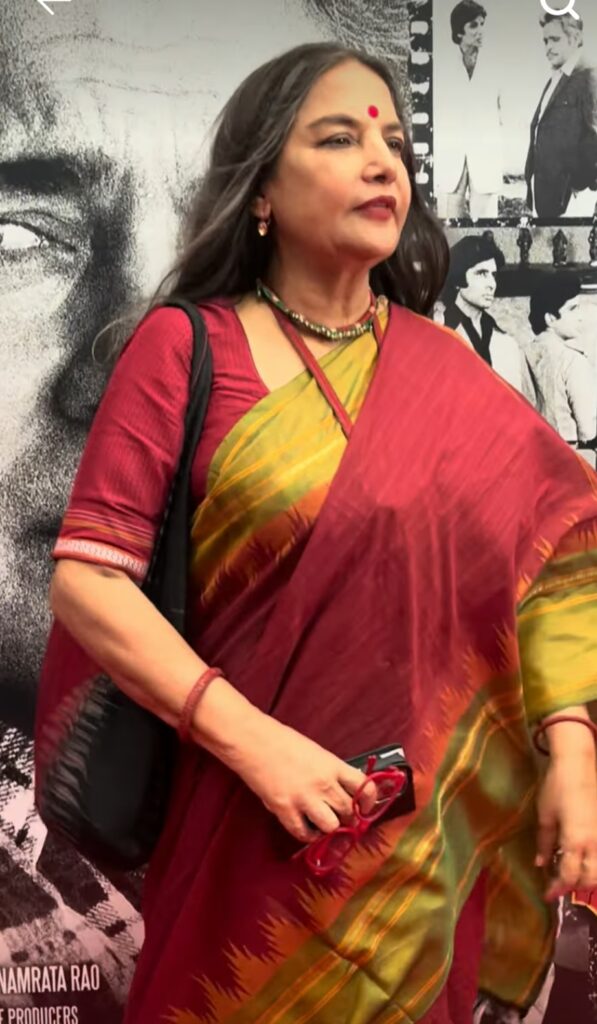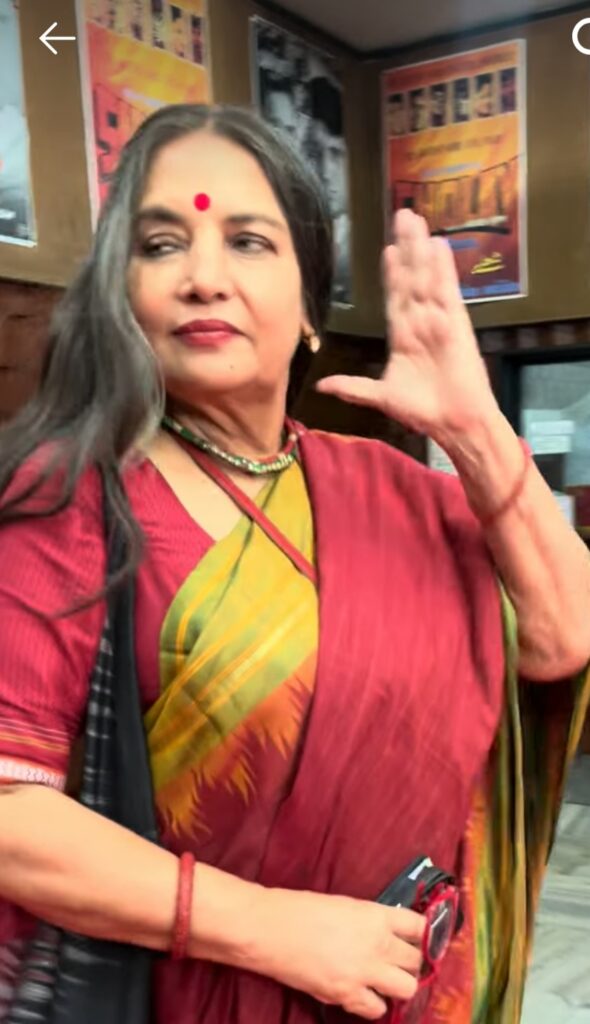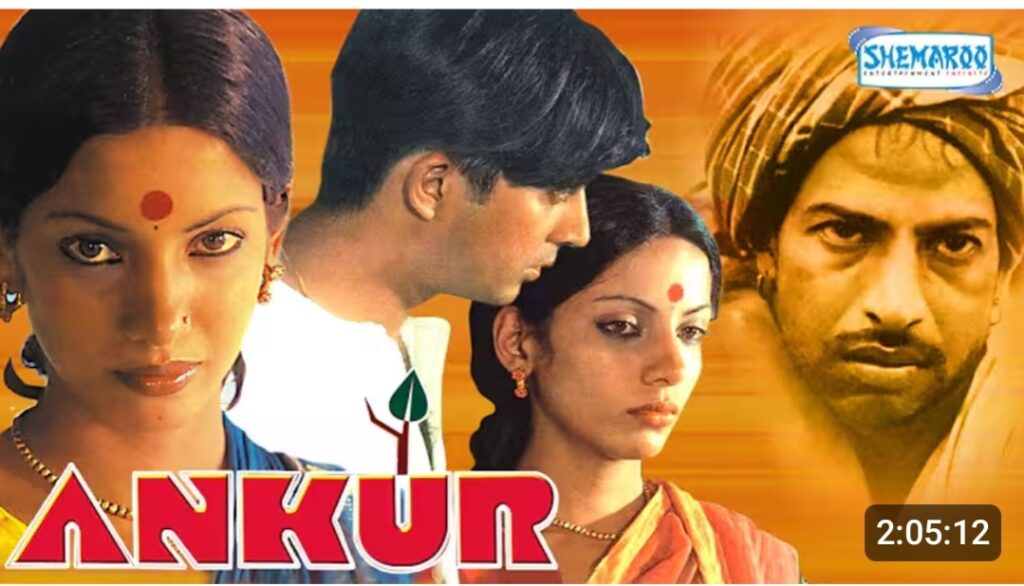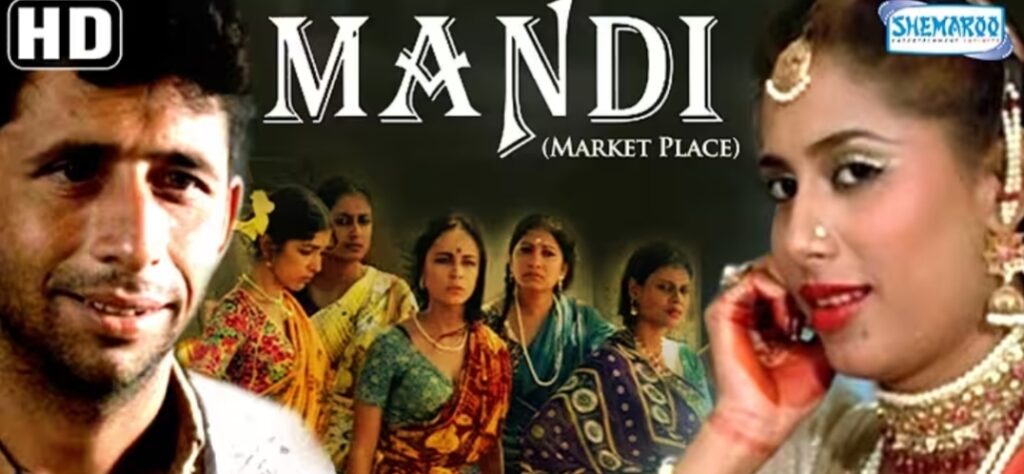

Shabana Azmi at 75: The Actor, the Activist, the Icon
From parallel cinema’s face to a voice for the marginalized, Shabana Azmi continues to define courage and artistry
On September 18, Shabana Azmi turns 75. For five decades, she has remained one of India’s most compelling actors and a fearless activist, navigating the often-clashing worlds of cinema, politics, and social change with rare grace.
A daughter of the arts—born to legendary Urdu poet and lyricist Kaifi Azmi and noted stage actress Shaukat Azmi—she was almost destined to inhabit stories. Yet, the way she has lived those stories, on-screen and off it, is uniquely her own.
Breaking Ground in Cinema
Azmi entered the world of cinema with Shyam Benegal’s landmark debut Ankur (1974). The film not only won her the first of her record five National Film Awards for Best Actress but also established her as the face of India’s “parallel cinema” movement. At a time when mainstream Bollywood was dominated by escapist song-and-dance blockbusters, Azmi chose characters rooted in realism—women caught in social hierarchies, economic hardships, and emotional turmoil.
Her collaborations with directors like Benegal, Govind Nihalani, and Satyajit Ray expanded the language of Indian cinema. Films such as Nishant (1975), Sparsh (1980), Arth (1982), Paar (1984), Khandhar (1984), and Mandi (1983) remain landmarks not just for their storytelling but for Azmi’s intense, lived-in performances.
At the same time, she balanced her filmography with mainstream successes, appearing in hits such as Amar Akbar Anthony (1977), Parvarish (1977), Karma (1986), and Masoom (1983). Her ability to slip between arthouse cinema and commercial Bollywood made her rare among her contemporaries.
In later decades, Azmi embraced global projects, from Deepa Mehta’s controversial Fire (1996)—where she played a woman finding love outside the boundaries of a patriarchal marriage—to international films like Roland Joffé’s City of Joy (1992), John Schlesinger’s Madame Sousatzka (1988), Mira Nair’s Reluctant Fundamentalist (2012), Shekhar Kapur’s Elizabeth: The Golden Age (2007), and most recently, What’s Love Got to Do with It? (2022).
Her appearances in Rocky Aur Rani Kii Prem Kahani (2023) and Ghoomer (2023) remind audiences that at 75, her artistry is as luminous as ever.
A Theatre Powerhouse

Parallel to her cinema career, Azmi found a strong stage presence. Her role in Feroz Abbas Khan’s Tumhari Amrita (1992), opposite Farooq Sheikh, is remembered as one of Indian theatre’s most enduring productions. Performed as a two-character epistolary play, it ran for over two decades across India and abroad. For Azmi, theatre was not just performance but dialogue—with audiences, with society, with memory.
Recognition and Accolades

Few actors in India can boast of Azmi’s awards shelf. She has won five National Film Awards for Best Actress—Ankur, Arth, Khandhar, Paar, and Godmother (1999)—and four Filmfare Awards. In 1988, she was conferred the Padma Shri, and in 2012, the Padma Bhushan, India’s third-highest civilian honour. At the 30th International Film Festival of India, she was honoured as one of the “women in cinema” who changed the face of the medium.
But recognition has never been only about trophies. Her presence at Cannes, Berlin, and Venice film festivals, and her involvement in global cinema, cemented her place as a cultural ambassador of Indian acting.
The Activist Within
If Azmi’s artistry is formidable, her activism is uncompromising. Inspired by her father Kaifi Azmi’s progressive ideals and her mother Shaukat Azmi’s work with the Indian People’s Theatre Association (IPTA), she has long fought for social justice.
In the 1980s, Azmi joined slum dwellers in Mumbai to demand better housing rights, living with them in protest to highlight their conditions.
She has championed women’s empowerment, AIDS awareness, child rights, and communal harmony, often putting her celebrity at risk. Her role as a Goodwill Ambassador of the United Nations Population Fund (UNFPA) further amplified her advocacy on population control, reproductive health, and gender equity.
Her activism is not symbolic—she is known to take stands even when unpopular. In 1989, she famously led a march into communal riot-affected areas in Mumbai, defying curfews to appeal for peace. She has been outspoken against religious fundamentalism, caste discrimination, and gender violence, often bringing the moral authority of her art into her politics.
In recognition of this, the President of India nominated her to the Rajya Sabha in 1997, where she served as a parliamentarian. Though her stint was not without controversy, her interventions on issues of women’s rights and social justice added weight to parliamentary debates.
Art Meets Politics
Azmi has always blurred the lines between her creative and activist selves. Her choice of films like Arth—which questioned marriage and female autonomy—or Fire—which confronted taboos around same-sex relationships—mirrored the issues she spoke about off-screen. Even in mainstream projects, she often infused her roles with dignity and agency, rejecting caricatures of women as mere accessories to male heroes.
She once said in an interview: “For me, acting is not about glamour but about holding a mirror to society.”
That philosophy explains her longevity—her career has never been about chasing stardom but about embodying relevance.
Personal Life and Partnerships
Shabana Azmi’s marriage to poet-lyricist and writer Javed Akhtar in 1984 brought together two of Indian cinema’s most influential minds. Both deeply rooted in progressive ideals, the couple has become synonymous with intellectual partnership and cultural leadership. Together, they have been at the forefront of initiatives for secularism, literacy, and the arts.
Her extended family is equally steeped in cinema: stepchildren Farhan and Zoya Akhtar are celebrated filmmaker-actors, while her niece Tabu is one of the most acclaimed actors of her generation.
A Legacy of Courage
At 75, Azmi’s legacy is not just her body of work but her courage to challenge.
She represents a generation of actors who used cinema as resistance and a life lived in alignment with ideals. Whether playing a rural woman in Paar trudging across a river with her husband and goats, or an upper-class housewife finding love in Fire, or an outspoken matriarch in Rocky Aur Rani Kii Prem Kahani, Azmi has consistently expanded the boundaries of how women are seen on screen.
Her activism, too, continues with the same passion. From speaking out against intolerance to supporting young voices in theatre and cinema, she remains a cultural conscience-keeper.
Looking Ahead
Even at 75, Shabana Azmi shows no signs of retreat. She continues to act, to speak, to provoke, to inspire. Her presence at film festivals, her mentoring of young talent, and her readiness to adapt to contemporary cinema mark her as an artist still in evolution.
In a world quick to celebrate fleeting glamour, Shabana Azmi stands as a reminder of a deeper artistry—one tied to truth, empathy, and justice.
The Final Word
Shabana Azmi is not just an actress. She is a movement. A bridge between art and activism, tradition and modernity, India and the world. As she turns 75, the country celebrates not only a performer of unmatched caliber but also a citizen who has dared to dream of a more just, equal, and humane world.
Hasnain Naqvi is a former member of the history faculty at St. Xavier’s College, Mumbai


